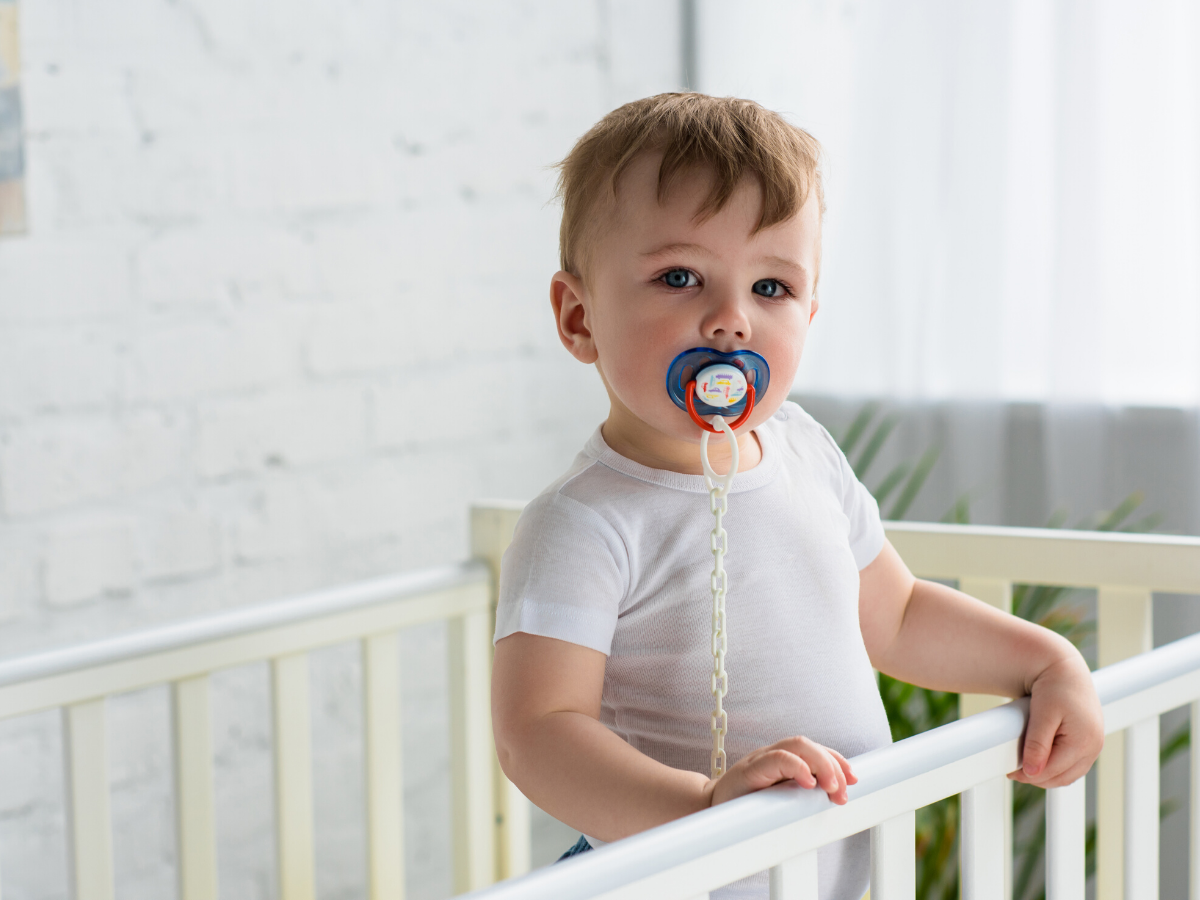The pacifier is often a controversial topic amongst parents. We will start this off by saying that our Baby Dream team LOVES paci’s and this article is going to teach you everything you need to know about pacifiers and how it pertains to sleep.
While some people rave about their pacifiers and couldn’t live without them, others may find that their babies rely on them, making sleeping without one a difficult feat.
Always keep in mind: There are a variety of opinions when it comes to pacifiers, so it is always important to speak with your pediatrician and decide together what’s best for your child.
So, what are the in’s and out’s of pacifiers?
The Benefits
Pacifiers are so popular, and they’re popular for good reason! They provide a ton of benefits, not only around sleep, but with feeding, health, endorphins, and even stress and anxiety.
Pacifiers have been known to help babies fall asleep and stay asleep. Not only may pacifiers become part of your child's sleep routine, but the anxiety calming effects of non-nutritive sucking can also help your child sleep for longer time periods.
Pacifiers are the perfect distraction for a fussy baby, if they’re going on an airplane, getting a shot at the doctor’s office, or even getting out of a warm bath, a pacifier can soothe them enough to keep anxiety low.
While some people have thought that pacifiers could cause confusion with breastfeeding, The Journal of Family Practice actually informs us that pacifiers have no negative effects on breastfeeding.
Most importantly, The AAP states that pacifiers can significantly decrease the risk of SIDS in newborns.
Timing is Everything
As with most things baby-related, when it comes to pacifiers TIMING is extremely important when introducing the pacifier to your baby.
If you are breastfeeding, you should wait to start pacifier use until you’ve set up a regular nursing routine. Your baby should be latching and feeding well before you begin pacifier use. This will deter from any nipple confusion. If your baby is exclusively bottle-fed, you can begin using the pacifier right away.
If your baby does not take/like the pacifier by 8-12 weeks of age, it is likely that they will not take to it as it needs to be introduced early enough.
With stopping the use of a pacifier, timing is also important. The AAP suggests that you should stop using the pacifier between 6-8 months of age.
Pacifiers and Sleep
Pacifiers are an important aspect of babies' sleep, for 2 main reasons:
Pacifiers decrease the risk of SIDS and suffocation during sleep because they make it more difficult for your baby to roll onto their stomach.
Pacifiers help decrease anxiety in babies, it does this through distraction. If you find that your baby is fussy before sleep, you can try and make the pacifier a part of your routine. Not only will the aspect of a routine help your child fall asleep easier in the long run, but the pacifier will also keep your baby calm.
On the other hand, some parents find that their babies may rely on their pacifier to fall asleep and when the pacifier falls out, the baby may cry. If you find that you are having to put the pacifier back in 3-4x a night, it is time you come up with a ‘pacifier weaning’ game plan.
How do I get rid of the pacifier?
If you find yourself in the above situation, one method of weaning your little one off the pacifier could be removing the pacifier gently from their mouth just before they are about to fall asleep (with their eyes closed). This will teach them to get into the first stage of sleep on their own, without their pacifier. After a few tries of perfecting this, they may no longer need their pacifier to sleep.
Tips and Tricks
- Always use a one-piece pacifier to reduce choking risks.
- Clean/sanitize your pacifier by boiling it in water. Especially during COVID-19, you should be sanitizing the pacifier frequently and keeping it out of the hands of anyone but you and your baby.
- Check the plastics in the pacifier you use, it should never include BPAs.





